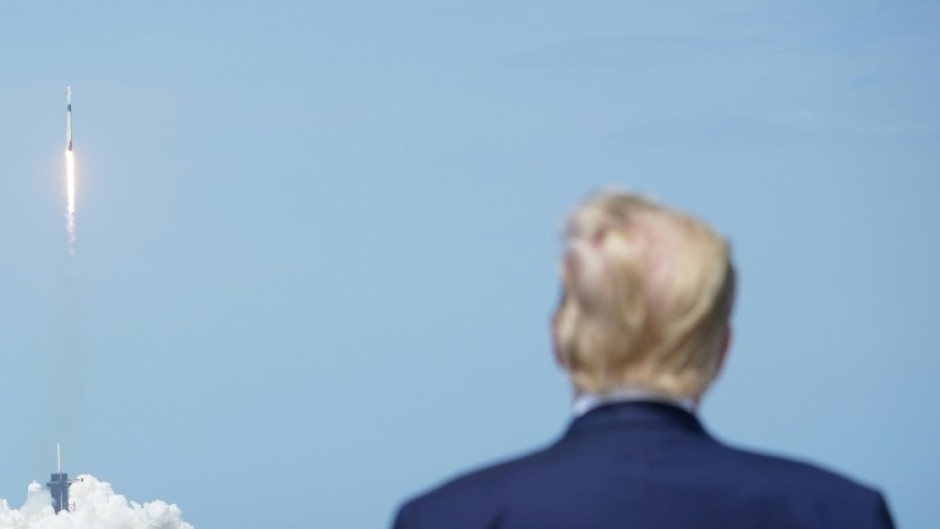WASHINGTON - Should NASA return to the Moon, or go straight to Mars? Maintain its focus on climate science, or pivot away?
President-elect Donald Trump's second term, alongside SpaceX CEO and new consigliere Elon Musk, could mark a Big Bang for the US space program.
The brash billionaire duo share a knack for disruption and a hunger for making history -- qualities tailor-made for space exploration.
In short, "it's going to be a wild ride," said George Nield, president of Commercial Space Technologies, a consultancy group for the private space industry. "People are tightening their seat belts and hoping for the best."
Trump's fascination with space is nothing new.
In his first term, he famously created the Space Force and revived the National Space Council, chaired by the vice president.
Most notably, he launched the Artemis program, aiming to land Americans on the Moon later this decade as a stepping stone to Mars. Yet even then, he was skeptical about the Moon's necessity.
"We want to reach Mars before the end of my term," he declared during the 2024 campaign -- an ambitious goal Musk has long championed.
"There's a good chance we'll see at least a re-look at the Artemis program -- whether that means speeding it up or even skipping the Moon to focus on Mars," said Nield, a former senior FAA official.
Such a shift would be seismic for a program projected to cost over $90 billion.
The Artemis 2 crew is set to fly by the Moon in September 2025, for the first time since Apollo.
China's plans could also temper any pivot.
Beijing has its sights on the lunar south pole -- the same target as Artemis -- and Trump is unlikely to let China plant its flag there unchallenged.
- Self-dealing? -
Then there's the question of what rocket will power these missions.
NASA's newly certified Space Launch System (SLS) has faced sharp criticism, especially from Musk, for being exorbitantly expensive due to its lack of reusability. By contrast, SpaceX's Starship prototype, designed to be fully reusable, has dazzled with its potential to revolutionize spaceflight.
Trump lavished praise on Starship during his election victory speech, highlighting SpaceX's feat of catching the rocket's booster stage with the giant "chopstick" arms of its launch tower. Could Starship replace SLS? Many in the space sector think it should.
But Musk's growing influence raises concerns.
Having poured tens of millions into Trump's campaign, he is now set to chair a body tasked with slashing bureaucracy and improving "government efficiency," including at agencies that oversee SpaceX.
Critics fear Musk might use his role to tinker with environmental regulations -- long a sticking point for his company's Starship launches -- or sway NASA and Pentagon contract awards.
SpaceX already enjoys lucrative deals to ferry astronauts to the ISS, launch defense satellites, and provide internet via its Starlink constellation network.
Musk's assignment is to "provide advice and guidance from outside the government," Trump said, a phrase that Kathleen Clark, a law professor at Washington University in St. Louis, finds troubling.
She suggests the choice of words seeks to blur the lines about what constitutes inside and outside the government, "and thus avoid application of conflict of interest rules."
- New NASA chief -
Musk's commission might also recommend slimming down NASA's sprawling network of ten centers nationwide -- a perennial idea often thwarted by senators eager to protect local jobs.
"That's probably a good idea," said Nield, though it could spark fierce resistance.
And if space has long been politically neutral, Elon Musk's involvement could provoke outcry from Democrats.
Outgoing President Joe Biden elevated climate change as a NASA priority like never before.
Under Trump's first term, NASA cut programs like the Carbon Monitoring System (CMS) and Plankton, Aerosol, Cloud, Ocean Ecosystem (PACE) satellite -- both later revived -- and downplayed climate change in strategy documents.
Clues about Trump's direction will emerge with his choice for NASA administrator. His first pick, Jim Bridenstine, was a loyalist in Congress.
la/ia/jgc
By Lucie Aubourg
AFP

